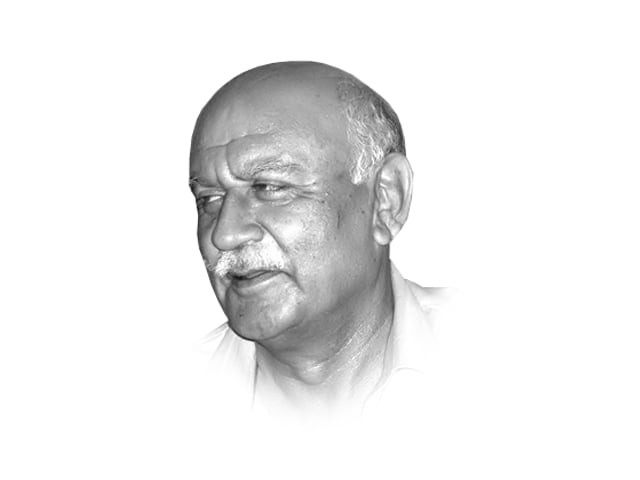Globalising issues
One way of legitimising our narrative internationally is to get an opinion on Indian interference in Balochistan

The writer is a retired brigadier and a former president of Islamabad Policy Research Institute
The Suez Crisis is an abbreviated version of a very long story of confrontational diplomacy and resolution of conflicting interests. This was a period when Russia had invaded Hungary and the US-led initiative in the UN was pressuring Russia to withdraw which it finally did. The Suez Crisis came at an unpropitious moment, because of which President Eisenhower was faced with a “moral dilemma”- a period of history when the US President could still suffer from a moral dilemma; a situation which, fortunately for current incumbents and, unfortunately for the world, no longer occurs. The Suez Crisis had been a long time building and, finally, in 1956, Gemal Abdul Nasser, the Egyptian President, nationalised the canal. Due to the Russian invasion of Hungary, which the US was opposing diplomatically, Eisenhower was forced to oppose the invasion of Suez as forcefully and determinedly as he had opposed the Russians. The US President is considered the most powerful man in the world but, even he is shackled by one constitutional condition; he cannot spend a cent without permission of Congress. Furthermore, he has to spend every cent sanctioned by parliament and, if he fails to, he has to explain why. Since Eisenhower’s efforts in the Security Council were vetoed by UK and France and, his efforts to pressure Israel by ceasing economic assistance to that state, by the Congress/Senate, he decided to take his case to the UN General Assembly (UNGA). The result: not only did the Russians also withdraw, both leaders of the UK and France were humiliated and had to resign and the UK finally ceased to claim to be a World Power.
Nicaragua Vs US in ICJ: The International Court of Justice can give a judgment only if both parties are willing to accept its decision. However, even if one part refuses to present its case to the ICJ, the ICJ can offer its “opinion”. Nicaragua’s insecure future had persisted even then. Left-wingers, the Sandinistas overthrew the previous dictator and were trying to rule but, in 1981 the Right-wing Contras began opposing them. Sandinistas enjoyed Soviet support and the Contras were US created and supported. Ronald Reagan, US President, was very insistent on continuing US support to the Contras and, in 1984, ordered a naval embargo of Nicaraguan ports and began mining them. The Nicaraguan government went to the ICJ. Not only did the US refuse to be party to the debate, it challenged the ICJ’s jurisdiction on such matters. All 15 judges agreed on three sub-paragraphs and only one dissented on sub-paragraph B2. Following the ICJ’s judgment/opinion, the US Congress’s refusal to sanction further funds to support Nicaraguan Contras resulted in the Iran-Gate scandal.
Both precedents could be of use to Pakistan at this critical juncture; when we have fallen afoul of the mighty US; and India, with US encouragement, is waging a Hybrid War against us and simultaneously, seeking to isolate us, with some success. Our real problem is that, internationally, few countries are prepared to buy “our narrative”. It is far more convenient to accept any narrative that indicts us.
One way of legitimising our narrative internationally is to get a favourable opinion on Indian interference in Balochistan. We may not wish to risk deteriorating our relations with the US by taking it to the ICJ but, if we have sufficient tangible evidence against India, we could certainly do so.
A judgment akin to the one issued in favour of Nicaragua could suddenly reverse roles with India on its accusations against us. But do we have political leadership courageous enough to undertake such a venture, or are these spineless fellows still hoping to make another buck or two again, by selling back sugar to India and buying it back at exorbitant prices?
Published in The Express Tribune, March 16th, 2017.
Like Opinion & Editorial on Facebook, follow @ETOpEd on Twitter to receive all updates on all our daily pieces.















COMMENTS
Comments are moderated and generally will be posted if they are on-topic and not abusive.
For more information, please see our Comments FAQ